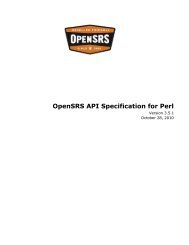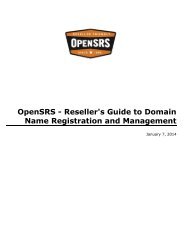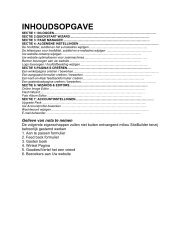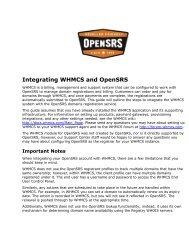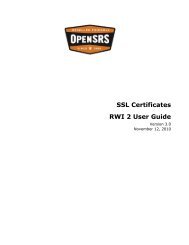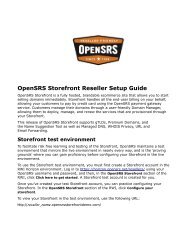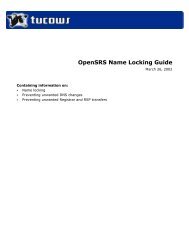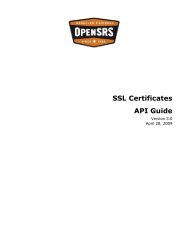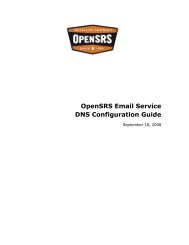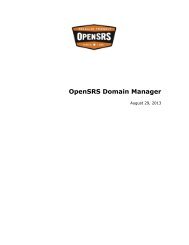OpenSRS API Integration for XML
OpenSRS API Integration for XML
OpenSRS API Integration for XML
You also want an ePaper? Increase the reach of your titles
YUMPU automatically turns print PDFs into web optimized ePapers that Google loves.
<br />
<br />
Tom Jones<br />
<br />
<br />
<br />
Semantic validity and <strong>API</strong> implementation<br />
Any <strong>API</strong> implementation that encodes/decodes OPS messages should be<br />
reflexive. That means that, if a message is encoded and then decoded, the<br />
results of that decoding and the original message should be identical. In<br />
other words:<br />
MSG A := decode (encode (MSG A) )<br />
Alternatively,<br />
let MSG A' := encode (MSG A)<br />
then MSG A := decode (MSG A')<br />
This restriction can be relaxed when it comes to the ordering of array<br />
elements and associative array elements in the OPS message. As long as the<br />
semantic meaning of the elements is preserved (semantic equivalence), the<br />
actual textual ordering in the <strong>XML</strong> stream is not important.<br />
This is because the <strong>XML</strong> data structure representation uses element numbers<br />
(in the case of array) and field names (in the case of associative arrays) to<br />
represent the data stream, and this in<strong>for</strong>mation can be used by the <strong>API</strong> to<br />
reconstruct the <strong>XML</strong> representation back into an in-memory data structure.<br />
This approach supports languages in which the ordering of elements <strong>for</strong> inmemory<br />
data structures is not deterministic., <strong>for</strong> example, Perl hashes<br />
(associative arrays), where the physical ordering of elements within the hash<br />
is not guaranteed.




